This paper reports on the outcomes of a one-year pilot study of young children’s experiences with numeracy/mathematics activities both in school and with their families. The aim of the study is to learn about the knowledge and skills which children learn at home which may provide positive but potentially unrecognized contributions to children’s learning in school, and to examine the extent to which numeracy learning from home and school are integrated in the classroom setting. Ultimately, the full project aims to contribute to an understanding of mathematics underachievement in urban children, so that schools can address this problem more effectively. In carrying out this pilot study, researchers observed a Head Start classroom in an elementary school in North Philadelphia and developed detailed case studies of four children from the class. The case study children were observed both in the classroom and ‘at home.’ (In order to meet families’ needs for flexibility, ‘home’ was defined to include a range of places where the children spent time with family members.) The article presents a vignette drawn from one of the case studies, which shows the child involved in numeracy-related activities both at school and at home. This vignette provides an example of one child who had developed numeracy skills through his home activities (e.g., game-playing, counting), but whose abilities were not recognized in the more formal school setting, with its emphasis on following rules and learning skills in an anticipated sequence. The authors report that their work has received an enthusiastic response from a number of audiences to whom the findings have been presented, including teachers and principal from the focal school, other Philadelphia School District teachers and central office staff, and individuals who teach math education at the university level. These presentations and resultant discussions have demonstrated that the vignettes can be useful as a tool for professional development.
Learning in Multiple Worlds: An Examination of the Intersection of Home and School Mathematics Practices
Eva Gold , Rhonda Mordecai-Phillips
Date: April 2003
Related Publications
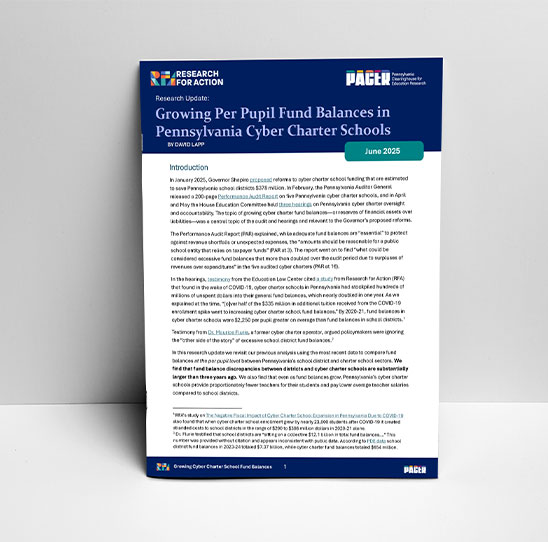
Publication
Growing Per Pupil Fund Balances in Pennsylvania Cyber Charter Schools
David Lapp
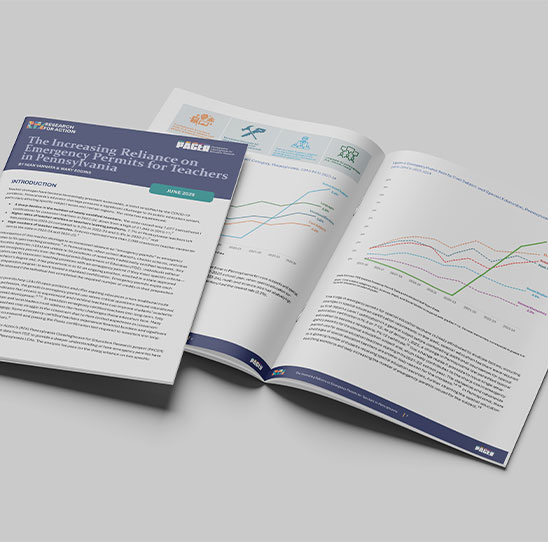
Publication
The Increasing Reliance on Emergency Permits for Teachers in Pennsylvania
Sean Vannata, Mary Eddins
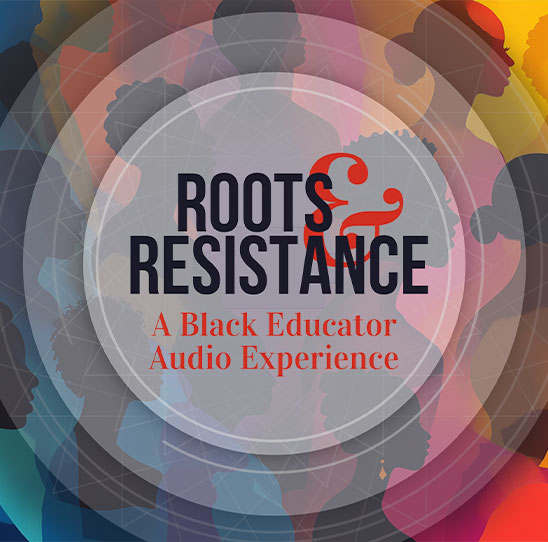
Publication
Small But Mighty – An Audio Documentary
Siettah Parks, Kevin Burgess, Alita Robinson, Mary Eddins
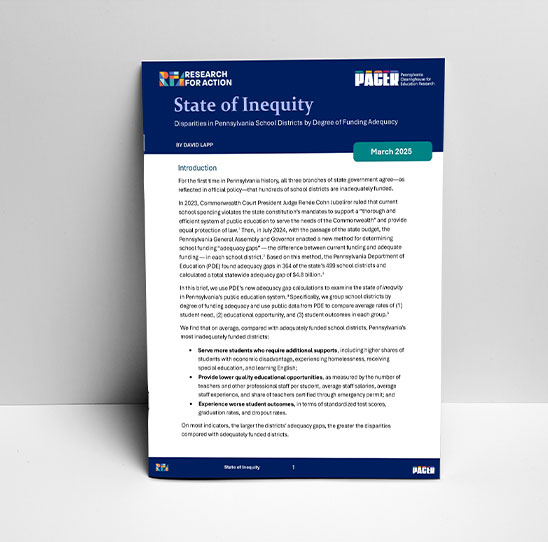
Publication
State of Inequity: Disparities in Pennsylvania School Districts by Degree of Funding Adequacy
David Lapp

Publication
Patterns of Student Mobility Among English Learner Students in Public High Schools in Philadelphia
Lindsey Liu, Sean Vannata
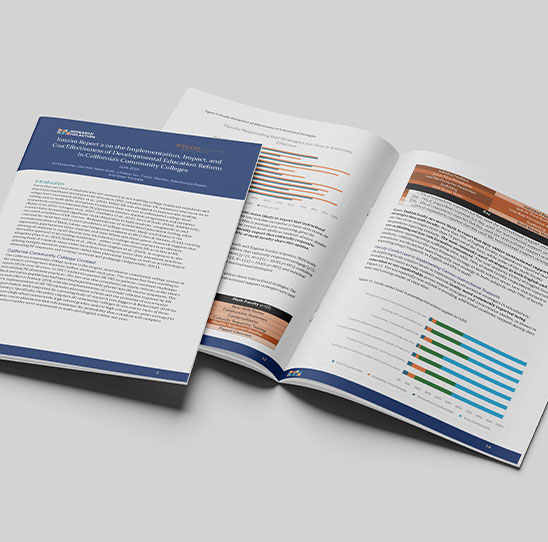
Publication
Interim Report 2 on the Implementation, Impact, and Cost Effectiveness of Developmental Education Reform in California’s Community Colleges
Kri Burkander, Dae Y. Kim, Mark Duffy, Lindsey Liu, Taylor Stenley, Keerthanya Rajesh, Sean Vannata
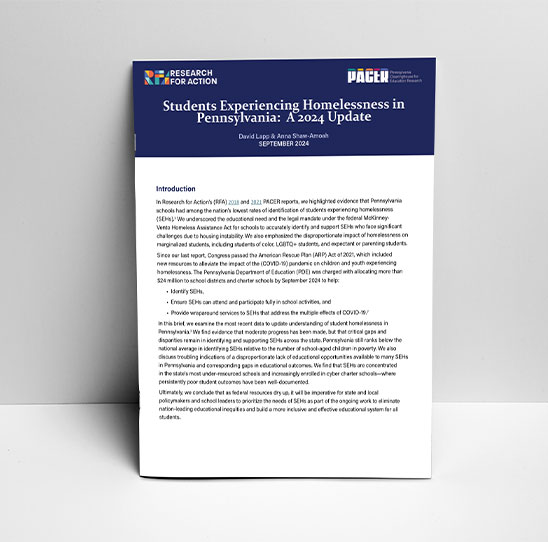
Publication
Students Experiencing Homelessness in Pennsylvania: A 2024 Update
David Lapp, Anna Shaw-Amoah

Publication
The When and How of Keystone Exams in the School District of Philadelphia
Molly Pileggi, Sean Vannata, Alyn Turner
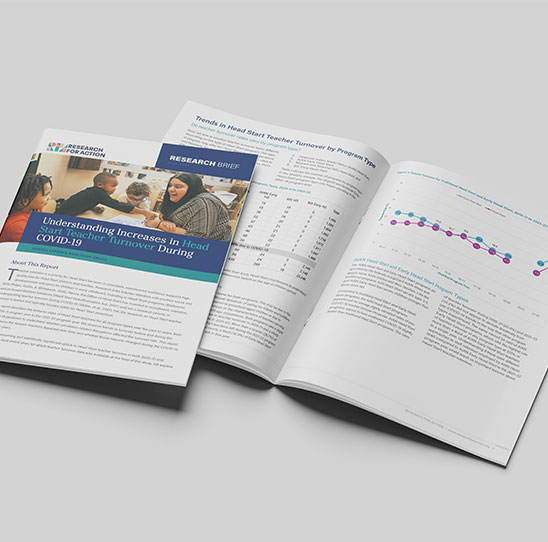
Publication
Understanding Increases in Head Start Teacher Turnover During COVID-19
Kendall LaParo, Anna Shaw-Amoah
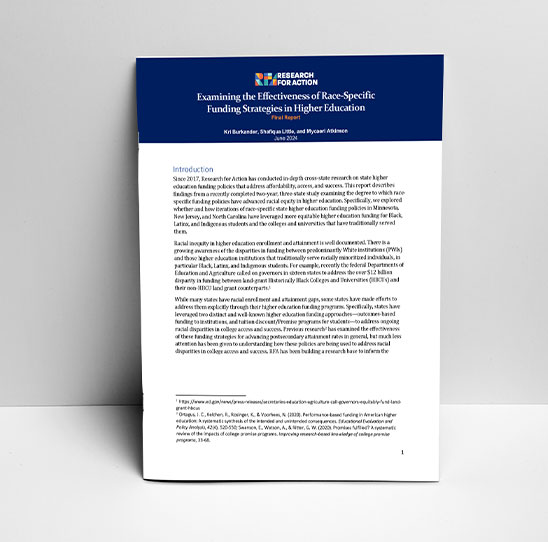
Publication
Examining the Effectiveness of Race-Specific Funding Strategies in Higher Education
Kri Burkander, Shafiqua Little, Mycaeri Atkinson
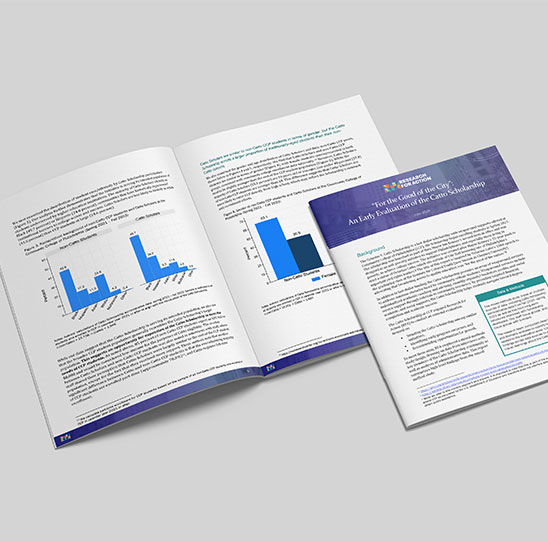
Publication
“For the Good of the City” An Early Evaluation of the Catto Scholarship
Kri Burkander, Karin Gegenheimer, Alita Robinson
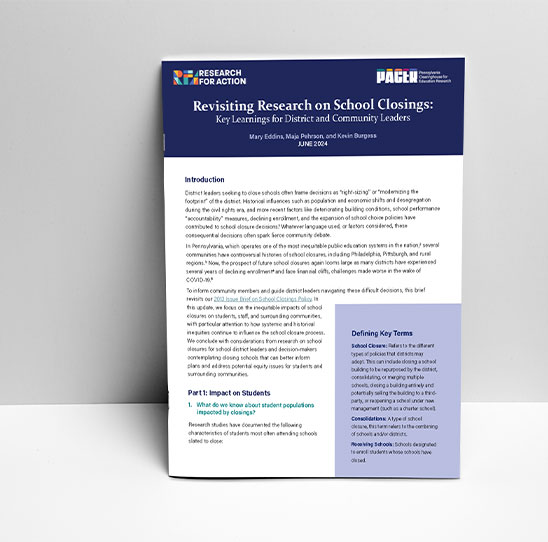
Publication
Revisiting Research on School Closings: Key Learnings for District and Community Leaders
Mary Eddins, Maja Pehrson, Kevin Burgess